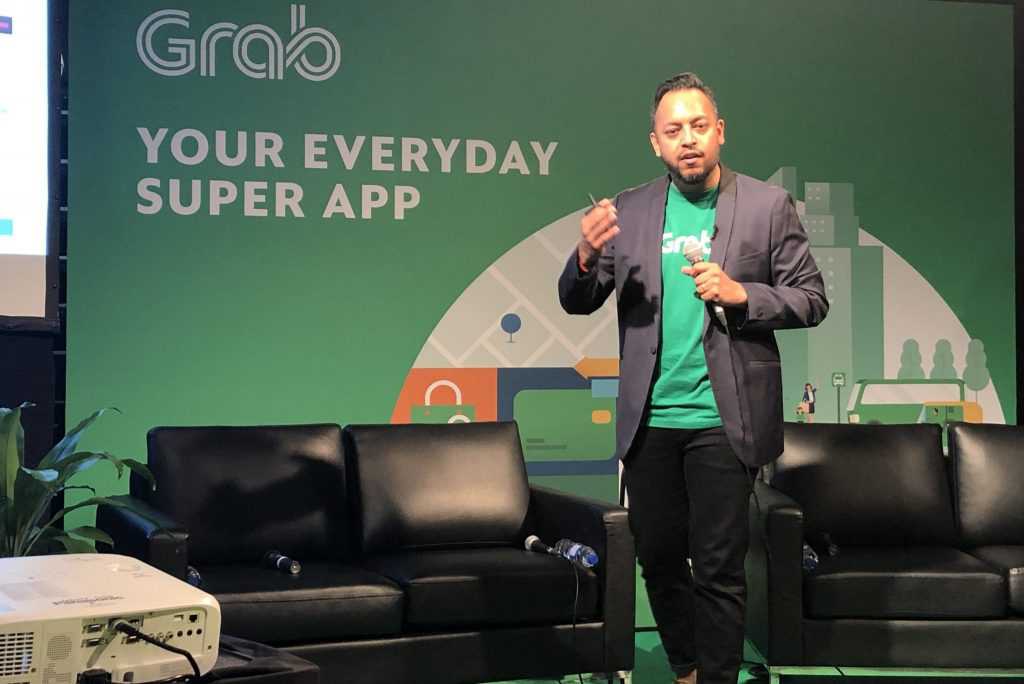Grab Enters Travel Booking With Hotels Now and Flights Next

Singapore-based ridehailing company Grab is officially entering the travel industry with hotel bookings powered by, no surprise to some in Asia’s travel circles, Agoda and Booking. Grab is expected to launch flight bookings within the year.
The move has been anticipated since Booking Holdings, which owns the two online travel agencies, invested $200 million in Grab last year.
By next month, Grab users in Singapore can book accommodations from Agoda.com on the Grab app, to be followed by Booking.com in June. There will be exclusive hotel offers, transport discounts, and free insurance coverage, among others, to generate bookings. But neither Grab nor Agoda would disclose sales expectations during a media briefing on Tuesday.
Join the 250,000 travel executives that already read our daily newsletter. Sign up below.
Flights are expected to be launched within the year, Grab’s head of product and design Jerald Singh said when asked by Skift about this.
“It’s coming,” said Singh. “We started out with accommodations because there’s a lot of synergies between hotel bookings and Grab.
“When you are able to book your hotel with Grab, not only are you able to get that hotel booked, but now we’re able to seamlessly book your ride to the airport, to the hotel because we know where you’re heading, and once you’re at the hotel, we’re able to give you options nearby, recommend restaurants that are close by, get food delivered to your hotel, and easily and seamlessly give you a ride to where in the city you want go to.
“On the flights side, it’s something we’re absolutely looking at as well. It’s on the roadmap and launching hopefully in the next several months as an add-on to hotel bookings.”
Watch out for Grab adding tours and activities too. Said Singh: “While I can’t tell you when it is coming, you can imagine that tours and activities is something else that has great synergy with Grab.”
Grab already offers some booking suggestions on things to do around the user’s location and places he/she can visit. “It’s a lightweight product experience that allows us to get some signal on the demand for tours and activities. And we’re seeing great demand. Things to do and places are in fact some of our most engaging content that we show on the Grab superapp — you can expect then that we would continue to consider who we should be partnering with to bring some of that inventory [into Grab],” said Singh.
Grab is coming under pressure to outsmart its arch-rival Go-Jek, even though it views itself as the “largest superapp” or “the only superapp in all of the biggest markets in Southeast Asia.”
Grab operates in eight ASEAN countries — Singapore, Indonesia, Malaysia, Philippines, Thailand, Vietnam, Cambodia, and Myanmar — versus Go-Jek’s four, namely, Indonesia, Vietnam, Singapore, and Thailand. But Go-Jek is expanding, soon to the Philippines and Malaysia, and is seen by some as having more creative chops in the range of services offered.
Beyond commuting, ordering food, hyper-local delivery, and digital payment, Go-Jek offers a plethora of lifestyle services such as Go-Massage, home spa, and massage service booking; Go-Clean, house cleaning service booking; Go-Auto, vehicle maintenance service booking; and Go-Glam, beautician booking service.
“The best company I’ve seen in Southeast Asia is Go-Jek,” said Tony Fernandes, AirAsia’s CEO, in an earlier interview with Skift on his vision to evolve the airline into a tech player. “I’ve learned a lot from them. They are super-smart, innovative, humble, and everyone has copied from them. They learnt from the Chinese [We Chat] as well, so everyone’s learning from each other. Go-Jek has given me a lot of belief, been my inspiration; they do things that help people, which is what AirAsia is about.”
Grab’s foray into travel may give it an edge over Go-Jek, but that remains to be seen as more travel players in Asia start inching closer toward the superapp phenomenon, as seen in Traveloka offering lifestyle bookings and AirAsia.com, which will also soon include other airlines’ tickets on its site.
Aside from hotels, Grab also introduced three other services, tickets, trip planning, and video, beginning with users in Singapore. But those have nothing to do with travel.
Turns out, tickets refers to cinema-ticket bookings in partnership with BookMyShow. Its trip planner service gives users public transport timings in Singapore so they can plan their journey and book their first-mile/last-mile transfers with Grab, and video offers on-demand streaming of movies and free-to-air content from HOOQ.
PARTNERSHIPS
When asked what makes Grab the better superapp compared to competitors in the region, Singh said, “Ours is powered by partnerships. Grab is truly the only open platform in this part of the world that companies such as BookMyShow, Agoda, Hooq can leverage, integrate their platform into ours, and bring their services to our customers here in Southeast Asia. That to us is the core differentiator.”
A source close to Grab in Indonesia gives an example of why the approach makes a difference: Grab partners with HappyFresh, which it says is Southeast Asia’s top grocery delivery provider, for its GrabFresh on-demand grocery delivery service. This integrates HappyFresh’s own platform into the main Grab app.
“When a customer books, say, bananas or delicate fresh fruits, HappyFresh has proper staff selecting the fruits. Go-Jek did not work with a partner; instead the drivers picked them. They’ve closed down their grocery delivery service [in September last year],” said the source.
Source: https://skift.com
Tags :
Previous Story
- Bangladesh’s ship industry sails on amid economic woes
- India gold discounts widen; Bangladesh launches trade policy
- Info of 1.5m people, including PM, hacked in...
- Singapore open to increasing security cooperation with Malaysia...
- Singapore 2018 GDP outlook more stable
- Singapore plans big to invest in Bangladesh